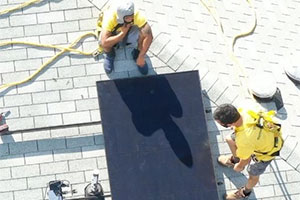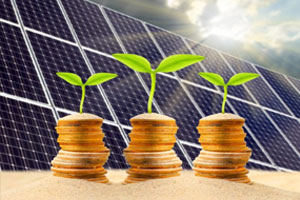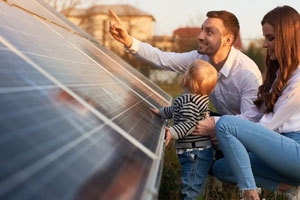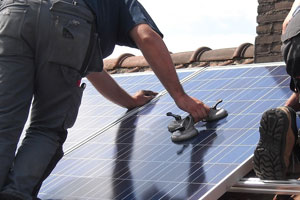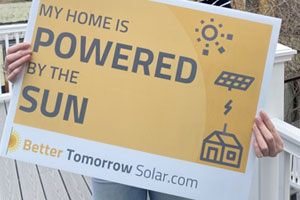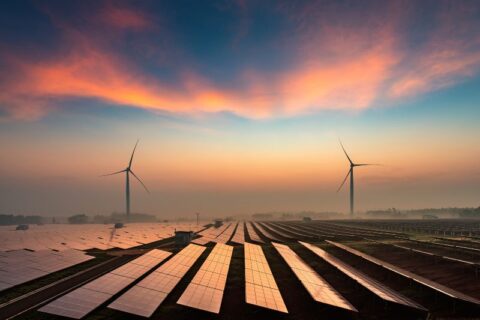Do Solar Panels Work on Cloudy Days?
As you might expect, solar panels generate less energy on cloudy days. As a result, many people assume solar panels are best-suited for sun-blasted regions like Phoenix or Miami. Yet photovoltaic (PV) arrays remain extremely popular and effective sources of energy in notoriously overcast and rainy cities like San Francisco and Seattle. How can this be? Part of the answer is that clouds are not as significant an obstacle as they appear to be.
How Do Solar Panels Produce Energy When it’s Cloudy?
Solar panels harvest sunlight as direct current (DC) electricity. Then, an inverter converts this to alternating current (AC) electricity for home use. The panels can generate DC electricity from both direct and indirect sunlight thanks to the photovoltaic effect. After all, clouds sometimes reflect or even magnify sunlight, allowing solar panels to still catch some rays when it’s overcast. As a result, clouds only decrease solar energy production by about 10 to 25 percent compared to a bright, sunny day.
Also, consider that rainy weather benefits your solar array because rainwater helps wash off dust, dirt, and even bird droppings to help your panels absorb sunlight more effectively. Rest assured that experienced solar installers know how to design systems to maximize performance in shaded areas, whether caused by cloudy weather, chimneys, or nearby trees.
Why Do Solar Panels Thrive in Cloudy Regions?
Weather patterns aren’t the only factor at play in cities like San Francisco and Seattle. High electricity cost is another reason many homeowners and businesses adopt solar panels. This explains why Germany and South Korea—countries with their fair share of cold, wintry weather—are two of the world’s most significant solar adopters.
What About Using Solar Panels at Night?
When the sun goes down, the PV effect can no longer occur. This means solar panels do not work at night. However, one way to continue using solar power after dark is to install battery storage. With this addition to your residential solar installation, any excess electricity your panels generate during the day can be used at night or on exceptionally overcast days, reducing the amount of electricity you must pull from the grid.
Batteries allow you to rely on your PV system all day and all night, no matter the weather. As an added bonus, your power will stay on even if there’s a blackout. In this way, your solar panels and battery storage system act as a backup generator. This promotes energy independence and gives you peace of mind the next time a threatening storm rolls in.
Now that you understand how solar panels generate electricity on cloudy days, you may decide you want to try out solar power for yourself. Better Tomorrow Solar can help you get started. We install solar panels for homes and businesses throughout Atlanta GA, and the surrounding metro area. We also provide optional backup batteries from three of today’s top brands, including Enphase, Generac, and Tesla. Ready to learn more? Contact us to request your free quote today!
